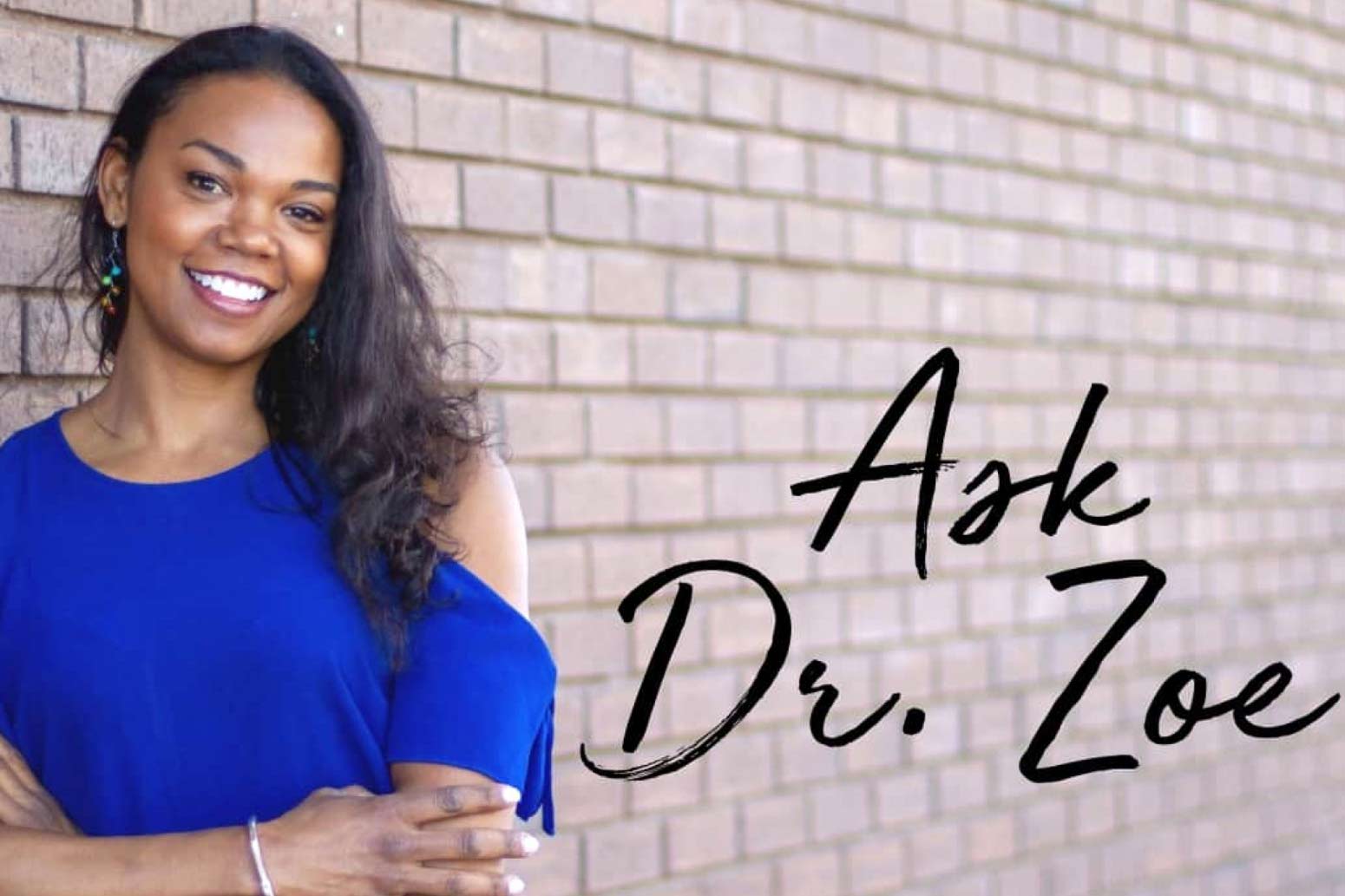‘Very Concerned Dad’ asked:
Please help. I’m religious and my wife kinda is. Our just-turned 13-year-old daughter had a crush last year on a girl and also thought she was trans—not fun. She’s not trans and realizes that now. She was manipulated/indoctrinated at an independent, Catholic school that felt we should change pronouns. My wife and I were able to get through that.
However, she has feelings about girls and boys and I’m trying to help her. Today, I got an alert that she was looking up her girl crush (an older student) online, so I need to talk to her tonight. Any advice about sexuality that I can share with her? I’m just so darn lost and not getting any help from our extremely progressive school.
Dr. Zoe answered:
Hi Very Concerned Dad,
Modern-day parenting can feel like walking through a minefield, especially when it comes to talking to our kids about sexuality and sexual identity.
Take a deep breath. It’s going to be okay. The good news is that one conversation is not going to make or break the outcome. Instead, try viewing this as ongoing conversations for the next many years with your daughter.
Acknowledge Her Thoughts and Feelings
The most important—and, by the way, the hardest—thing we need to do as parents during these ongoing conversations is to acknowledge our children’s thoughts, desires, feelings, drives, and convictions. This is especially hard when their ideas conflict with our own. Acknowledging doesn’t mean supporting or agreeing with them. Acknowledging them is simply sending a message that says, ‘I value you and love you and understand that you are not me.’
What every child needs to hear is that they are loved unconditionally. What every human wants from
When a person feels valued, they care what you have to say to them. When they don’t feel valued, your words carry far less weight.
The other thing to consider as you navigate this issue with your daughter is that your relationship is forever. It is just as likely that her same-sex attraction is an adolescent phase as it is that it will be a lifelong way of being for her. Either way, she is your daughter and the conversations you have with her now will affect your relationship forever.
Ask Questions
Before you start giving input, ask her questions. Don’t make any assumptions. Be curious about what it means to “have feelings” for both boys and girls. Ask her when she first started having these feelings and how does she differentiate them from feelings of friendship-type attraction?
You mentioned that you are religious. I’m not sure what that means, but I am curious about what your daughter’s thoughts are regarding her relationship with God and her sexual identity exploration. I would ask her.
It’s important to let her know that the conversations you are having right now about her romantic and sexual choices are different than ones you may have in a decade when she is an adult and is mature enough to make some life-altering decisions. Right now, you are speaking to the 13-year-old that she is, although she is too young to make certain life choices, despite what she wants and feels. Because we change so much during our adolescence and early adulthood, this is not the time for her to be placing herself in any category regarding who she may want to get sexually involved with in the future.
Distinguish Between Friendship and Feelings
Now is the time to emphasize that she should be learning the difference between romantic feelings and friendship—and sometimes they feel very similarly. Sometimes same-sex friendships can feel more intimate than romantic relationships, which carry their own difficulties. Acknowledge this for her. But don’t minimize her feelings of attraction.
Instead, gently explore with her how the culture we live in today persuades us to make decisions about pronouns and our sexual orientation way before we even have the emotional maturity to understand we can feel a close affinity toward someone, especially our own gender, and that does not necessarily mean we are sexually attracted to them.
Attraction is a whole different ballgame that is difficult to put our fingers on, but can also be deceiving. Sometimes we can feel a sense of sexual attraction to someone who feels very familiar to us. In that case, we are confusing attraction with familiarity. I would encourage your daughter to start learning that we can even be sexually attracted to people who aren’t healthy for us to be in relationship with and that there is a difference between attraction, behavior, and identity.
Acknowledge Your Faith and Our Shared Humanity
In these kinds of conversations, I like to use words like “healthy” and “good”, instead of “right” and “wrong”. The reason is not to water down God’s word, but to help her understand that what God chose for us is healthy and good for us. He doesn’t make up arbitrary rules because he wants to keep us from the things we want in our life.
Because we change so much during our adolescence and early adulthood, this is not the time for her to be placing herself in any category regarding who she may want to get sexually involved with in the future.
I believe that we are obligated as parents to teach our children our beliefs, convictions and morality. For us to withhold this from our children is a form of neglect. I also think we need to walk the line between making our beliefs clear and walking out our beliefs as an example for our children and forcing them to share our own. We should never force our beliefs for a number of reasons. And if we do, we are likely to achieve the opposite of what we want with our children because human nature is to push back.
I think the answer to anything as Christians is to acknowledge our humanity, not deny it. To acknowledge how we feel about something, compare it to what we believe God’s will is in our lives and make decisions based on his will, knowing that his will for us is for good, not bad. He wants us to live in healthy freedom, not in bondage to our own desires.
Notice I talked about major themes and ideas for you to consider as you have conversations with your daughter over the next years. These kinds of conversations don’t shame her or provide consequences that may force her toward forbidden desires. They simply explore with her, while gently imparting your own wisdom, boundaries and beliefs.
I know this is hard and it may feel like your words are falling on deaf ears. They aren’t. Kids are really good at seeming like they’re not listening, while silently soaking it all in. Just love her, be curious, explore with her and impart your own wisdom appropriately. You’ve got this!














